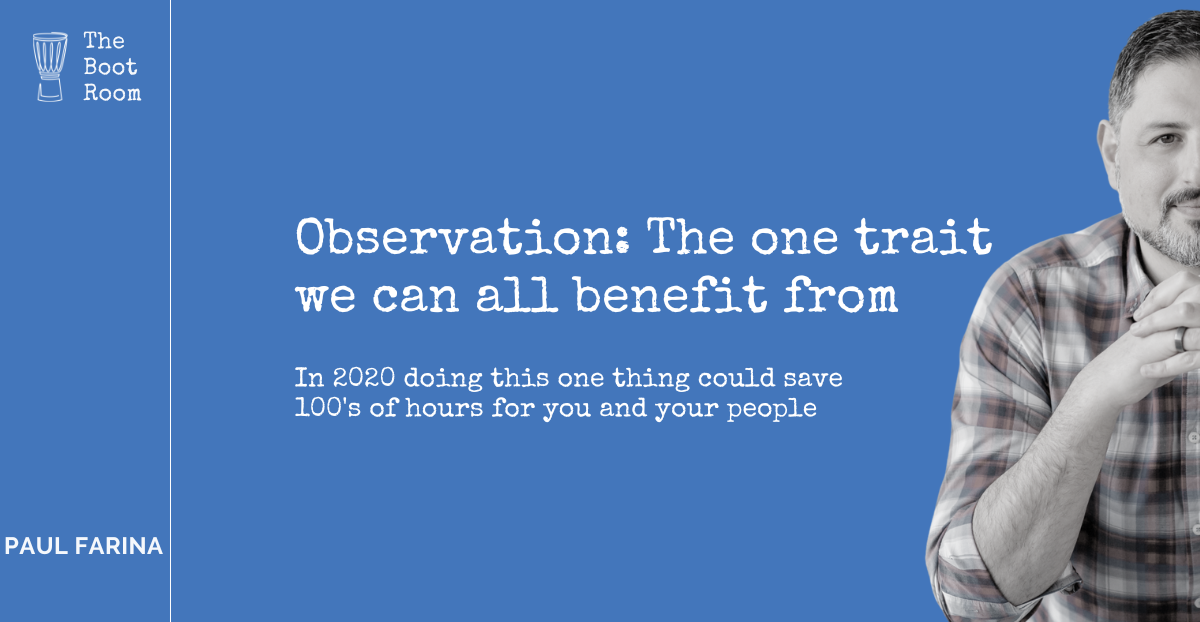Observation: The one trait we can all benefit from
In 2020 doing this one thing could save 100's of hours for you and your people
Every coaching, mentoring, and training session I do is preceded by a leadership journal or diagnostic of some sort for clients to input their thoughts and experiences. It is a way people can independently 'brain dump' their work challenges and suggested actions in a safe and uninterpreted way. This in itself is a great practice in the face of the complex problems we are trying to solve on a daily basis. But, there is more to the process than this. When we come to our sessions we are aiming for one goal - to find the best action for the person to go out and experiment with in real time to uplift their leadership performance.
In the process, there is one observation I find myself constantly making - vagueness is rife and it is not helpful. Problems can be defined in a hazy or woolly fashion. The details of a situation may be a tad on the broad or fuzzy side. And, actions people want to commit to can become a little unclear and therefore unhelpful. I do this myself too, and it is the job of my mentors and coaches to help me refine and define my thoughts to the point of precision.
When we invest in doing this, we find ourselves in a place of clarity. For leaders, this is where we want to be if we are going to change behaviours and synchronise our people.
The consistent trait of 'being specific' (or specific'ness as I like to call it) is of itself the one thing I feel we can all do better and a lot more often. By putting more energy into this on a daily basis I believe we can make more progress with less effort and resource. The broad and sometimes obvious reaction to situations and challenges can create problems of themselves. Or at best, will mean we stagnate on a situation. In our current climate, anything that helps to create forward movement must be of great value.
Some tips to elevate specific'ness:
Write thoughts down often. I used to do this once a week as I thought I did not have time to do it more often. Now I do it every day, if not more. I find this to be an essential to my professional practice now.
Talk. Share. Often. By discussing things with an intention to problem solve for 'specific'ness' we can find the exact particulars we need.
Flag it. When you know you are sitting in a trough of vagueness be sure to get help. Call a colleague, a boss, or have a professional mentor to hand.
What else do you do to elevate your specific'ness?

